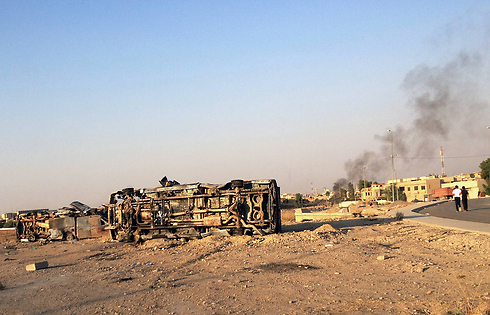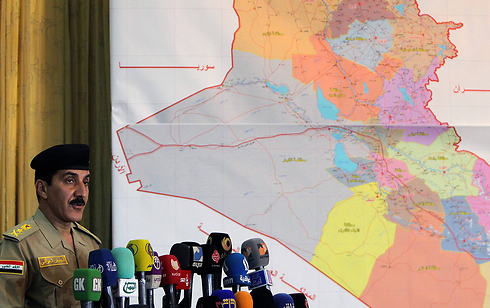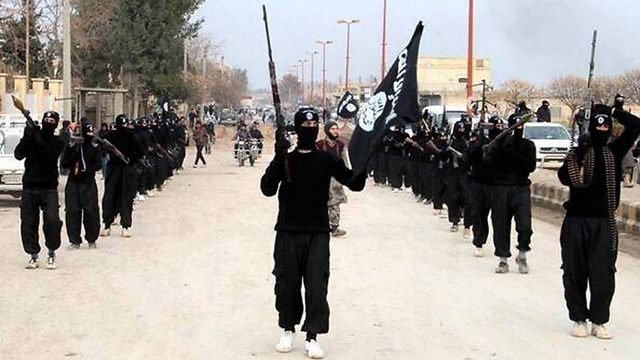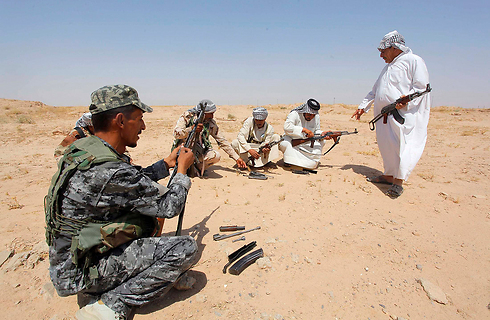What do you know about Common Core?
Is it good for improving education?
Is it something you support?
On July 22, The Skidaway Island Republican club
will be hosting a presentation on this subject along with insights to the
benefits of Charter Schools. At 5 PM we will be conducting this True
Perspective in The Azaela Room of The Plantation Club. If you like, join us
early and enjoy refreshments and a members bar prior to the meeting.
Roger Moss, Chairman of The Savannah Classical Academy (SCA) and
Benjamin Payne, Headmaster, will discuss the pros and cons of Common Core and
what their Chatham County Charter School have been able to attain in educating
their students. This will be a very informative session and helping you gain
greater knowledge of educational opportunities for the future.
Education is critical to our nation's survival and this is
particularly so among inner city children who have been denied access to a
solid educational foundation because of a variety of factors among which are:
federal intrusion, political correctness and the break down of the family unit.
As always, a question and answer period will follow the
presentation.
We
are limited in seating to 70. Please let us know asap your plans to
attend.
Sustaining
Members no charge, Regular Members $5.00 and non-Members $10.00.
Please
contact Russ Peterson for reservations at 598-9845 or russp16@aol.com
===
Penetration of our borders creates an opportunity according to Pelosi. (See 1 below.)
===
Another perspective but always the same conclusion. Obama and his misguided dreamy policies or intentional ones have helped create a new Caliphate.
Meanwhile, he arrogantly blames Republicans for blocking him causing him to end run the Constitution. This from a professor who claims to have taught Constitutional Law. What garbage was fed to American voters waiting to be duped because of their hatred of G.W.
So now we are paying for this stupidity and Obama's incompetence and the cost will only escalate.
And I have yet to even mention the disaster this buffoon of a president is causing on our borders , the various scandals which he denies have occurred or he is not to blame etc.
Welcome to Obama's World! (See 2 and 2a below.)
===
The ice man cometh? (See 3 below.)
====
Hobby Lobby wins, Obama loses again!
===
Penetration of our borders creates an opportunity according to Pelosi. (See 1 below.)
===
Another perspective but always the same conclusion. Obama and his misguided dreamy policies or intentional ones have helped create a new Caliphate.
Meanwhile, he arrogantly blames Republicans for blocking him causing him to end run the Constitution. This from a professor who claims to have taught Constitutional Law. What garbage was fed to American voters waiting to be duped because of their hatred of G.W.
So now we are paying for this stupidity and Obama's incompetence and the cost will only escalate.
And I have yet to even mention the disaster this buffoon of a president is causing on our borders , the various scandals which he denies have occurred or he is not to blame etc.
Welcome to Obama's World! (See 2 and 2a below.)
===
The ice man cometh? (See 3 below.)
====
Hobby Lobby wins, Obama loses again!
===
Dick
-----------------------------------------------------------------------------------------------
1) Pelosi calls surge of illegal immigrant children an ‘opportunity’
2)-
1) Pelosi calls surge of illegal immigrant children an ‘opportunity’
House Democratic Leader Nancy Pelosi argued Saturday that the surge of illegal immigrant children and families crossing from Mexico into the U.S. is more of an "opportunity" than a "crisis."
The Obama administration itself appears to be treating the surge as a crisis, assigning a point person -- FEMA Administrator Craig Fugate -- to coordinate the federal response. But Pelosi, D-Calif., visiting the Texas-Mexico border on Saturday, suggested those crossing should be welcomed and not treated as a problem.
"This crisis that some call a crisis, we have to view as an opportunity," Pelosi said. "If you believe as we do that every child, every person has a spark of divinity in them, and is therefore worthy of respect -- what we saw in those rooms was [a] dazzling, sparkling, array of God's children, worthy of respect."
Pelosi acknowledged that the surge "does have crisis qualities," but again urged the public to use it as an "opportunity to show who we are as Americans, that we do respect people for their dignity and worth."
Republican lawmakers have blamed the surge -- largely made up of illegal immigrant minors trekking from Central America, through Mexico and across the Rio Grande Valley in Texas -- on the Obama administration's policies, arguing that they've only encouraged more illegal immigration.
The Obama administration, for its part, has tried to telegraph to Central American countries that their residents will not be given a free pass to stay in the U.S.
Due to the backlog in the immigration system and other factors, however, the reality is that the U.S. government is housing many of those crossing for an indeterminate period of time.
----------------------------------------------------------------------------------------------According to The Associated Press, President Obama plans to seek more than $2 billion to help respond to the crossings, and seek "fast track" authority for the Department of Homeland Security to more quickly screen and deport children crossing the border illegally.
2)-
|
| It seems like an eternity has passed since the Cairo Speech, in which President Barack Obama said he came “to seek a new beginning between the US and Muslims around the world,” was delivered a mere five years ago this month. Half a decade on, Obama’s vision is in shambles. US interests in the Middle East are imperiled as they have not been for half a century. Disrespect of America is rife among those Obama set out to appease, while America’s allies mistrust Obama. Furthermore, an overwhelming majority of Americans – including Democrats – have lost faith in his foreign policy, according to a New York Times/CBS poll published this week. Back in 2009, Obama delivered more than 5,000 words of sweeping generalizations and pretentious declarations, many of which he now surely regrets. Quoting the Koran, he preached the merits of truth, apologized to Iran for a US-aided coup in 1953, vowed to close the Guantanamo prison, assured Muslims that America is not “a self-interested empire,” cried “Islam is part of America,” derided governments “dictating what clothes a Muslim woman should wear,” hailed democracy while equivocating that “no system of government can or should be imposed on one nation by another,” insinuated that the Holocaust was the reason for Israel’s existence, compared the Palestinian plight to that of the American slaves, and, to audience applause, demanded an immediate cessation of settlement building in the West Bank. Obama’s move was already attacked at the time, most notably by Lebanese- born, Middle East expert Fouad Ajami, who incidentally passed away this week. “I was in Saudi Arabia,” reported Ajami days after the Cairo Speech. “There was unease that so complicated an ideological and cultural terrain could be approached with such ease and haste.” Referring to an earlier statement by Obama, that he wanted American- Muslim relations restored to how they were “30 or 20 years earlier,” Ajami noted that Obama’s imagined idyll actually included the Khomeini Revolution, the standoff with Libya, the fall of Beirut to America’s enemies, and the downing of Pan Am Flight 103 over Lockerbie. Still, at the time the damage of Obama’s speech seemed to be mainly to his image, which came across as frivolous. Critics noted that no plan of action was associated with his lecture, no prior coordination occurred with local allies, and no experts were consulted about the likely results of such high-profile rhetoric in societies unaccustomed to American-style public debate. Now, with events making a mockery of his vow to help Baghdad build its army and “support and secure a united Iraq,” a consensus is emerging in the West that US strategic interests have been seriously damaged, that American diplomacy fell victim to ignorance, arrogance and naivete, and that policy overhaul is imperative – if not for the sake of America’s interests, then at least for the sake of worldwide diplomatic stature. THE FAILURE of Obama’s diplomacy is climaxing now in Iraq, but his strategic losses began in Egypt. US Secretary of State John Kerry’s appearance this week in Cairo was a trip to Canossa. Having previously sided with Egypt’s Islamists, and responded to their ouster by suspending aid to the interim government of Gen. Abdel Fattah al-Sisi, Obama’s emissary this week arrived in Sisi’s chambers and sheepishly restored that aid. It was a belated recognition that the florid rhetoric of the Cairo Speech had little to do with reality, which is embodied in the elevation of Sisi to president of Egypt. And as has happened repeatedly because of his Middle East hyperactivity, Obama ended up buying the damaged goods and paying double the price. Obama’s original sin with Egypt was the delivery of his ideas through a loudspeaker in then-president Hosni Mubarak’s living room. There are only two possible explanations for this conduct: maybe Obama did or didn’t understand that he was potentially helping unseat one of America’s most loyal allies. If he didn’t understand such an elementary Middle Eastern dynamic, he was in no position to discuss our troubled region’s problems. And if he did understand the risks, he should have considered how his ideas would come across to locals as betrayal. As it were, Obama’s treatment of Mubarak resulted in Egypt turning to Russia, which gladly agreed to sell Sisi advanced aircraft and missiles. That was a strategic bonanza Moscow had never dreamed of, considering the superiority of American weaponry that Egypt had been buying ever since its peace treaty with Israel. Obama, in sum, failed to bring Egypt closer to democracy, lost its trust, and eased its way back to Moscow’s bosom. This failure to understand the most elementary laws of power-play was repeated in Syria, although in a different way. At stake there was not loyalty and alliance, but enforcement. It would have been one thing for Washington to say that it is neutral on Syria, or to remain mum while President Bashar Assad gassed his people. However, to vow to use force and then fail to deliver on the threat indicates that Obama did not merely play the game poorly – he didn’t even know the rules. Such conduct calls for bad guys throughout the world to do as they please – which is indeed what they did. The first to test Obama was North Korea, when it violated agreements with the US and conducted a nuclear test, incidentally or not, the week before the Cairo Speech. Obama’s failure to respond to such a drastic provocation was registered by autocrats worldwide, from then-Venezuelan president Hugo Chavez, who helped Iran survive sanctions, to Russia’s Vladimir Putin, who later prowled Ukraine. The diplomatic inconsistency displayed in Syria was compounded by the ideological inconsistency displayed to its south. If US policy was to demand democracy in Cairo, then why not make the same demand in Riyadh, Kuwait City and Doha? And if popular upheaval is to win US support, then why not back the Shi’ite majority’s challenge to Bahrain’s pro-Saudi government? Yes, the Middle East is a very complex place, and no one would have demanded that Obama reinvent it. He volunteered to present himself as the region’s reinventor, and the funeral for this pretension is now taking place in Iraq. THE TROUNCING of Iraq’s American-built army by the Islamic State of Iraq and Syria’s armed forces would have been avoided had Washington thought historically, and acted creatively. The underlying assumptions of Obama’s policy in Iraq were that international borders are sacred, its army is reliable and its democracy is viable. Yet any student of Middle Eastern history would have told him that Iraq, like Syria and Lebanon, is an artificial country that European colonialists imposed on rival minorities and faiths. Americans, who by definition superimpose their citizenship on their religious and ethnic backgrounds, find the Iraqis’ inversion of these priorities difficult to understand. Yet that is the norm in this part of the world, and this mentality is in fact now reshaping Syria, Lebanon and Libya. To distance himself from the colonialist legacy he decried in Cairo, Obama could have embraced Iraq’s organic divides, and supported their building a future around its three major communities’ well-known identities. Instead, he enshrined the colonialists’ untenable legacy. A proper reading of Iraq’s American-led democratization would have led to the conclusion that dissolution is effectively the will of the Iraqi people, considering that they voted, and their politicians ruled, according to sectarian priorities. That is also why the Iraqi army unraveled. Handing Sunni conscripts nice uniforms and new guns did not make them feel closer to those who dressed and armed them than to the tribe and faith that defined them. IT IS NOT TOO LATE to redefine Washington’s Middle Eastern policy. But it must first ask what its overriding interest in this part of the world actually is. The Middle East has been, over the centuries, many things to many powers. For Alexander the Great, it was a bridge between civilizations. For the Ottomans, it was an imperial center of gravity. For the British, it was the passage to India. For US president Franklin D. Roosevelt, it was an oil field. For the Cold War’s protagonists, it was a wrestling arena. For US president Bill Clinton, it was a peacemaker’s Gordian knot. And for his two successors, it became a field of dreams. Now, the dreaming is making way for sober watchfulness. America has only one enemy in the world, and it is not autocracy – it is Radical Islam. Rulers like Putin, Sisi or Saudi Arabia’s King Abdullah are bad for their people, but they don’t target America. Islamism does. It follows that in the Mideast, the US should play with those who are strong and pragmatic, and focus on confronting the fanatics – be they Sunnis in Mosul and Gaza, or Shi’ites in Beirut and Tehran. Judging by its acceptance of Sisi, the White House is now beginning to understand this. The next logical step is therefore to accept Iraq’s and Syria’s dissolution, cultivate the Kurdish Regional Government, accept the emergence of a Shi’ite state in southern Iraq, and help Jordan and Turkey shape a Sunni state between western Iraq and eastern Syria. No, this will not be panacea. Western values will remain foreign to them, and Western interests will still require struggle. However, the struggle’s aim will be clear, and its prospects vastly improved. 2a) SIS declares new Islamic caliphate ISIS changes name to just Islamic State, says 'legality of all emirates, groups, states and organizations becomes null by the expansion of the caliph's authority.' The al-Qaeda breakaway group that has seized much of northeastern Syria and huge tracts of neighboring Iraq formally declared the establishment of a new Islamic state on Sunday and demanded allegiance from Muslims worldwide.
With brutal efficiency, the Sunni extremist group has carved out a large chunk of territory that has effectively erased
the border between Iraq and Syria and laid the foundations of its proto-state. But the declaration, made on the first
day of the Muslim holy month of Ramadan, could trigger a wave of infighting among the Sunni militant factions that
formed a loose alliance in the blitz across Iraq and impact the broader international jihadist movement, especially
the future of al-Qaeda.
 Devastation in Mosul, Iraq (Photo: AP)
The spokesman for the Islamic State of Iraq and the Levant (or ISIS) declared the group's chief, Abu Bakr al-
Baghdadi, as the leader of the new caliphate, or Islamic state, and called on Muslims everywhere, not just those
in areas under the organization's control, to swear loyalty to al-Baghdadi and support him.
authority and the arrival of its troops to their areas," said the spokesman, Abu Mohammed al-Adnani, in an audio statement posted online. "Listen to your caliph and obey him. Support your state, which grows every day." a vast stretch of land straddling the border that is already largely under the Islamic State's control. He also said that with the establishment of the caliphate, the group was changing its name to just the Islamic State, dropping the mention of Iraq and the Levant.  Iraqi military spokesman General Qassim Ata (Photo: AFP) much of North Africa and beyond in various forms over the course of Islam's 1,400-year history. predicted it could herald infighting among the Sunni militants who have joined forces with the Islamic State in its fight against Iraqi Prime Minister Nouri al-Maliki and his Shiite-led government. said Aymenn al-Tamimi, an analyst who specializes in Islamic militants in Iraq and Syria, using one of several acronyms for the Islamic State. "The prospect of infighting in Iraq is increased for sure." Terror under threat
The greatest impact, however, could be on the broader international jihadist movement, in particular on the future
of al-Qaeda.
mantle of the international jihadi cause. But the Islamic State has managed to do in Syria and Iraq what al-Qaeda never has - carve out a large swath of territory in the heart of the Arab world and control it.  ISIS forces (Photo: AP) "This announcement poses a huge threat to al-Qaeda and its long-time position of leadership of the international jihadist cause," said Charles Lister, a visiting fellow at the Brookings Doha Center, in emailed comments. "Taken globally, the younger generation of the jihadist community is becoming more and more supportive of (the Islamic State), largely out of fealty to its slick and proven capacity for attaining rapid results through brutality." Islamic State in 2010 when it was still an al-Qaeda affiliate based in Iraq. Since then, he has transformed what had been an umbrella organization focused mainly on Iraq into a transnational military force. out after al-Baghdadi ignored al-Zawahri's demands that the Islamic State leave Syria. Fed up with al-Baghdadi and unable to control him, al-Zawahri formally disavowed the Islamic State in February. on much of Syria, and now overrun large swathes of Iraq.  Iraqi forces in desert (Photo: Reuters) posed by the Sunni extremists. critical moment for the international community to stand together against ISIL and the advances it has made, " State Department spokeswoman Jen Psaki said. to the jihadi group and its Sunni militant allies in recent weeks. northern city of Tikrit, the predominantly Sunni hometown of former dictator Saddam Hussein. The Iraqi military launched its push to wrest back Tikrit, a hotbed of antipathy toward Iraq's Shiite-led government, on Saturday with a multi-pronged assault spearheaded by ground troops backed by tanks and helicopters. on Sunday, but clashes were taking place in the northern neighborhood of Qadissiyah, two residents reached by telephone said. the University of Tikrit, where troops brought by helicopter established a bridgehead two days ago. He said many of the militants had deployed to the city's outskirts, apparently to blunt the Iraqi military attack. university and had raised the Iraqi flag over the campus. achieved results," al-Moussawi said. "It is a matter of time before we declare the total clearing" of Tikrit. served as a US military facility known as Camp Speicher. He spoke on condition of anonymity because he was not authorized to brief the media. Iraq and has played an "essential" role in the Tikrit offensive. al-Bolani told The Associated Press. The US is also flying manned and unmanned aircraft on reconnaissance missions over Iraq. Islamic State and its Sunni allies. The militants' surge across the vast Sunni-dominated areas that stretch from Baghdad north and west to the Syrian and Jordanian borders has thrown Iraq into its deepest crisis since US troops withdrew in December 2011. territory, has raised the prospect of Iraq being split in three, along sectarian and ethnic lines. consecutive term as prime minister after his bloc won the most seats in April elections. 3) Antarctic Sea Ice Growing Despite Global Warming Warnings
By Sandy Fitzgerald
The sea ice coverage around Antarctica over the weekend marked a record high, with the ice surrounding the continent measuring at 2.07 million square kilometers, according to an environmentalist and author who says the ice there has actually been increasing since 1979 despite continued warnings of global warming. The new record was posted for the first time by the University of Illinois at Urbana-Champaign’s online record, The Cryosphere Today, early Sunday morning. It's not apparent if the record actually occurred on Friday or Saturday, says Harold Ambler on his blog, Talking About the Weather. Ambler is a journalist and author of the book "Don't Sell Your Coat: Surprising Truths About Climate Change." "The previous record anomaly for Southern Hemisphere sea ice area was 1.840 million square kilometers and occurred on December 20, 2007," said Ambler. Meanwhile, he pointed out, global sea ice area on Sunday was standing at 0.991 million square kilometers above average, a figure he arrived at by adding anomalies for the North and South hemispheres. While early models predicted the sea ice would decrease because of global warming, other models are showing that the opposite is happening around Antarctica, where sea ice growth is increasing. "A freshening of the waters surrounding the southernmost continent as well as the strengthening of the winds circling it were both theorized as explanations for the steady growth of Antarctica’s sea ice during the period of satellite measurement," said Ambler. However, he pointed out that climatologists have discounted the importance and growth of the Antarctic sea ice. According to Walt Meier, formerly of the National Snow and Ice Data Center and currently of NASA’s Goddard Institute for Space Studies, most of the Antarctic sea ice does not survive between years, and it's less significant to the Earth's climate than is the ice around the Arctic. Meanwhile, Ambler said that the growth of the Antarctic sea ice is providing "a public relations problem, at a minimum, for those warning of global warming’s menace." During the past 18 months, global sea ice "has seen its most robust 18-month period of the last 13 years, maintaining, on average, a positive anomaly for an 18-month period for the first time since 2001, " he wrote. In addition, Ambler said, the South Pole's temperature has been dropping over the past 40 years. --------------------------------------------------------------------------------------------------- | |||
No comments:
Post a Comment